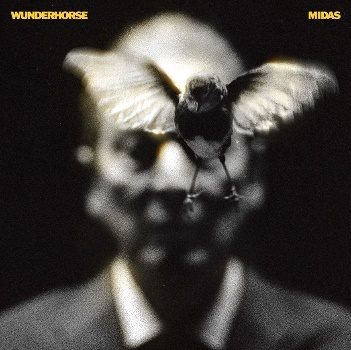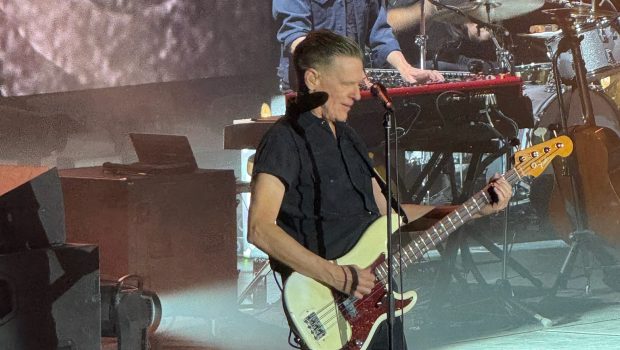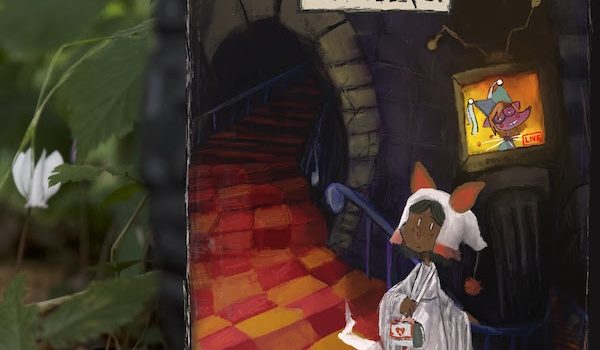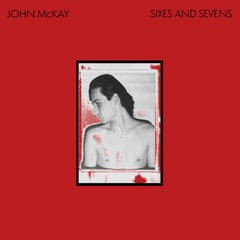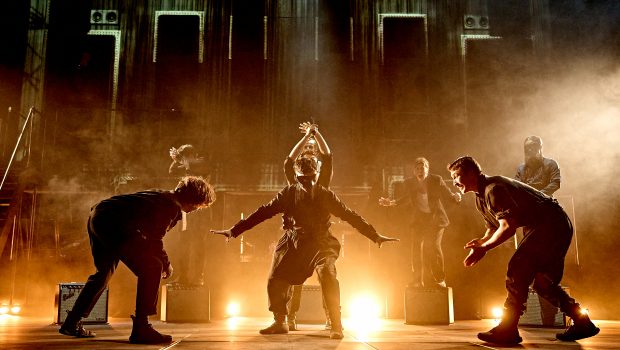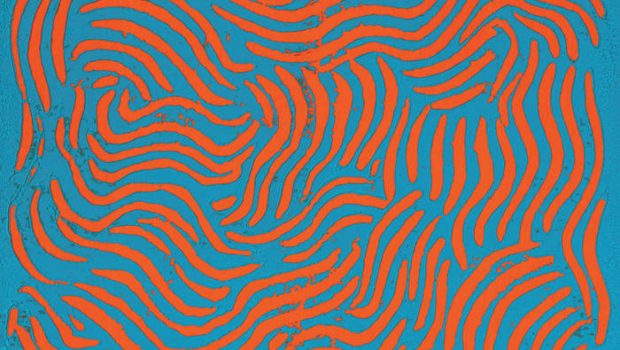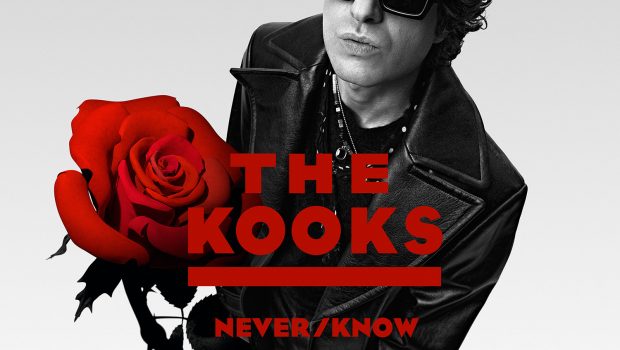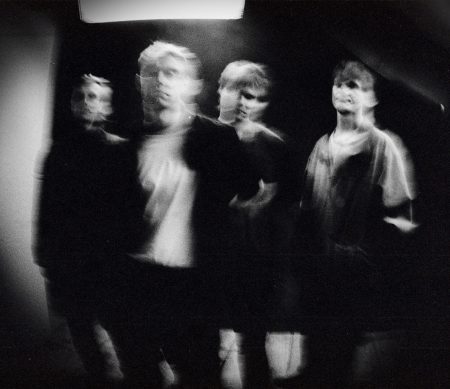
C. Polocho 2024
“I think we just wanted to make a record like the ones we love.”
Jamie Staples, drummer in the solo project turned band, shares just how Wunderhorse went from Cub finding its feet to beast with eight legs and a thirst for the good old days of grunge.
Midas represents the second album under the moniker of Wunderhorse although, as Staples cements, “I think for us it would probably be an exception really as far as second albums go ‘cause I think we as a unit felt like it was our first.” After touring extensively together since the release of Cub in 2022, (a solo endeavour from lead Jacob Slater) the group returned to the studio like a couple fresh from their first trip abroad – newly official with copious amounts of shared material.
“Jacob was still the prime songwriter for this record… he’d bring things to us in an embryonic stage if you like, in a way that we could all build upon and put our stamp on, as players and as people,” Staples credits, going on to say, “our shared experiences together as friends and as bandmates I think contributed to us making something great.” The air of this record is undeniably collaborative, even the silence between songs feels like four held breaths and sets of poised fingertips. Cub may have been a beautiful collection of songs, but this new release is an album, living and breathing. “I think we knew that’s what we wanted to do, we wanted to make a live sounding record like you’re in the room with us when you listen to it,” he continues, the sun bleaching one side of his face. It’s hard not to smile at the irony of this image, that familiar stain of Midas gold following him like the world’s most lucrative ad campaign.
The album’s sound skips fly on the wall and jumps straight to stowaway in their kickdrum. If the goal was to make you feel like you’re there watching them rehearse, I’d say what they’ve achieved is one better – it’s more like you’re in the middle of the room feeding instruments through your bones and into a cassette. It’s not just live, it’s alive. “There’s obviously other records that we were able to reference to do that…” Staples chews on this thought not wishing to make any hasty comparisons, “I suppose most obviously In Utero which was recorded at the very same studio.”
It makes perfect sense that the ghost of great records past would lurk around the creation of Midas. After all, it represents the kind of controlled chaos that far too many artists now hide beneath the gloss of autotune and compressors. That’s not to say that the group didn’t employ any tools to give it that shiny coat, “there was a couple of Albini’s little tricks that we picked up.” Staples once again disclaimers that, “we didn’t want to make a second In Utero,” before divulging what golden tip the magpies took, “[you’d have] doors open in the studio, and you’d have amps in different rooms and they’d be cordoned off but we’d let it all bleed into the main room where the drums were.” Before you know it, every bit of air you can breathe is humming the same tune. It might not be In Utero, but it doesn’t need to be. It’s like stepping into the skin of a sound we’ve heard before and realising it still fits, it might even be more comfortable now.
The unspoken heartbeat beneath that skin of course being the drums. A cigarette dangles loosely from Staples fingertips as he muses, I’m sure unbiasedly, “I think a lot of coming to pick a studio space is about getting a great room for the drums… definitely an unsung hero – or at least I would say.” The drums are in many ways the spine of a live show, they kick in first and keep the whole track standing. On an album where “every take of every song [was a] live take,” they’re practically invaluable. “The drum sound I think is, on a record, one of the most important things to making it quite unique,” he finalises. In that way, Midas strikes gold as the drums aren’t just the beat, but another voice that weaves between lines like a bandit with a pulse.
As well as acknowledging the worth of his own role, Staples is also quick to praise his bandmates, Harry Fowler (guitar), Pete Woodin (bass) and Jacob Slater (vocals and guitar.) A smile plays on his cheeks as he states, “Jacob is very good at what he does.” Whilst Staples is keen to assure that everyone’s input is not just welcome but crucial, he also adds that, “more often than not,” they get behind whatever vision Slater is selling.
As a lyricist, Slater is unshakeable. His ability to lay out his soul with the words he writes whilst still saving space for yours to fit beside him makes for a record that isn’t just born from real emotion but buries in its listeners to tug that same emotion out of them. Wunderhorse may have started as just one person, but it was always destined to reach far beyond the body that built it. “I think, just speaking for myself, that’s one of the best things a songwriter can do actually… you know there’s obviously a personal element of their experience going into the song but to be able to write something that people in different situations can connect with is important,” Staples affirms, a ring glinting unassumingly on his left hand – etched on its face, the Wunderhorse insignia. “The real beauty is people taking what they need from it.”
The best records are nothing if not a bit of give and take. In a climate where newness is a rarity, it’s all about the art of reinvention. Midas collages sound from the grunge aesthetic of the 90s back to the rough surface of The Rolling Stones early releases. “It’s funny you mentioned The Stones because we would most mornings have a listening party, there was quite a selection of records at the studio… each morning we would put on a record and try and listen to it start to finish and there was a couple Stones records in there and Rubber Soul by The Beatles,” Staples explains how the past and present came together much like a paintbrush full of ink deployed in fresh water.
It would seem Wunderhorse’s reigns are more tightly held by artists of the past where attitude and imperfections ran free. “I think all of us liked more old music than new for sure, not that there isn’t some good stuff coming out, because there is, but it’s just an incredibly saturated thing now… I feel there is a lot going on,” he responds to the suggestion of their musical DNA being that of an old soul, “the essence of bands like Nirvana if you like and The Stones, there’s this freedom to it and it’s kind of at the core of what we love about music.”
Despite all the saturated colours of todays musical landscape, guitar-based sounds seem to be the brightest hue once again. Perhaps people are starting to crave the very freedom Staples described. With artists like Sam Fender and Fontaines DC on the tip of every critic’s tongue (both of whom Wunderhorse have recently supported), it’d be hard to argue that authenticity and experimentation aren’t once again being rewarded. “I think again just from our point of view, certainly in the recording of records, things have gotten maybe too considered and less raw and you end up with something quite polished but with… maybe less personality,” Staples rolls carefully over the end of his thought. What people seem to be demanding from their music now is simple: something fierce and something real. As Staples put it, “every now and then music comes along that is just undeniable, no matter what genre it’s in.”
How does that happen? You create to serve a song and not to serve an audience – or even to serve yourself. For Wunderhorse, that means creating, “even if you have to take a backseat or whatever it might be to create a world, to create an emotion, to allow the lyric to breathe… that’s what we all enjoy doing in the band anyway.”
Staples’ parting words drip with cheek and charm. Laughing as he considers how to sign off, he settles on, “just buy our records and come to our shows… so we can get paid!” In other words, feed the beast – Wunderhorse are undeniable.

